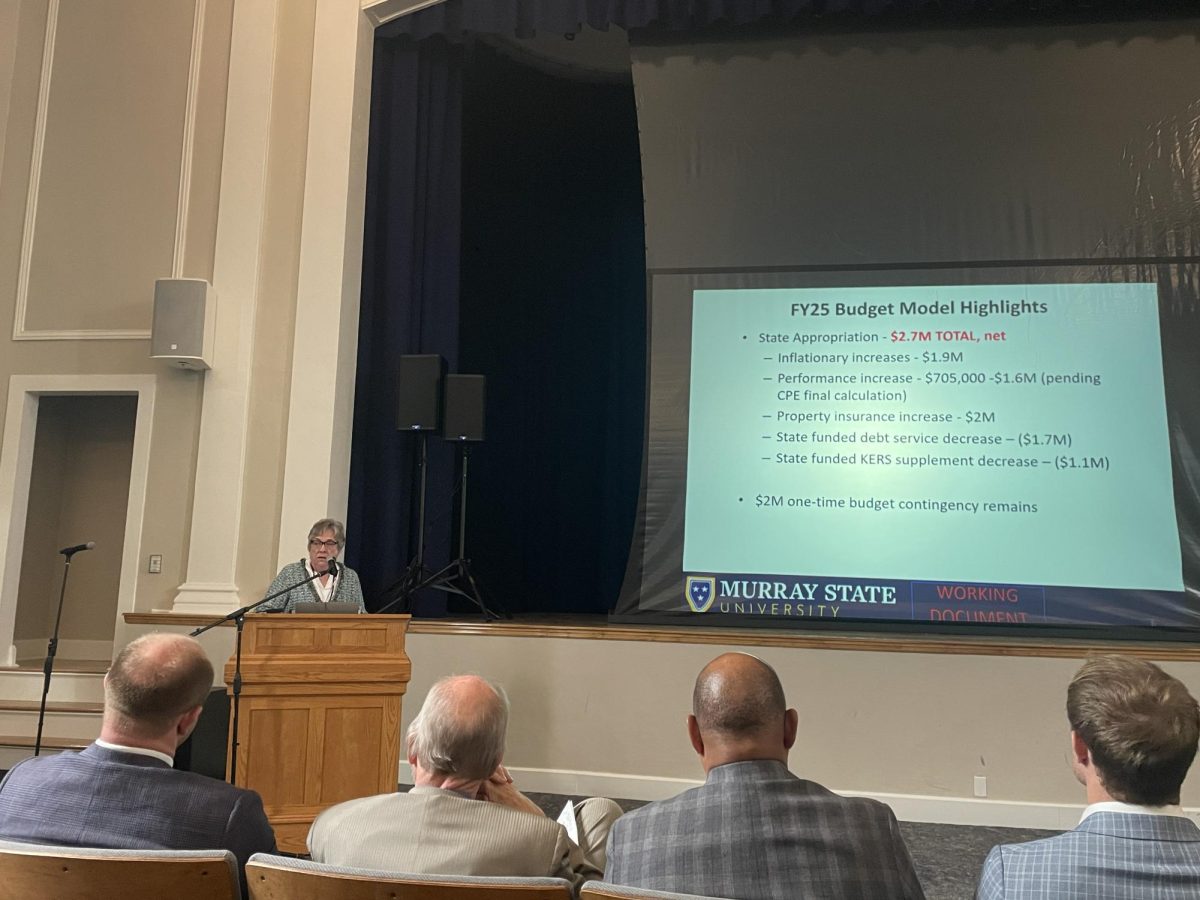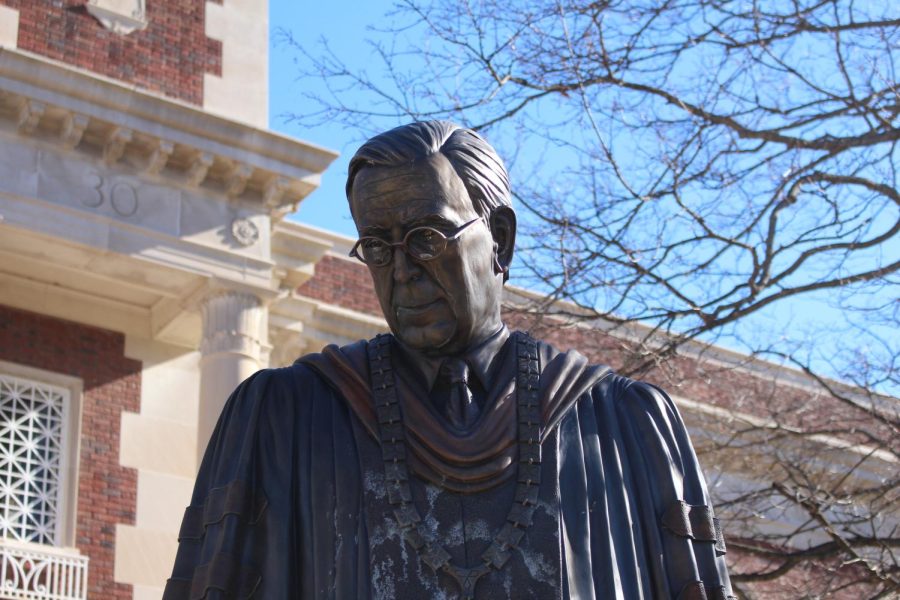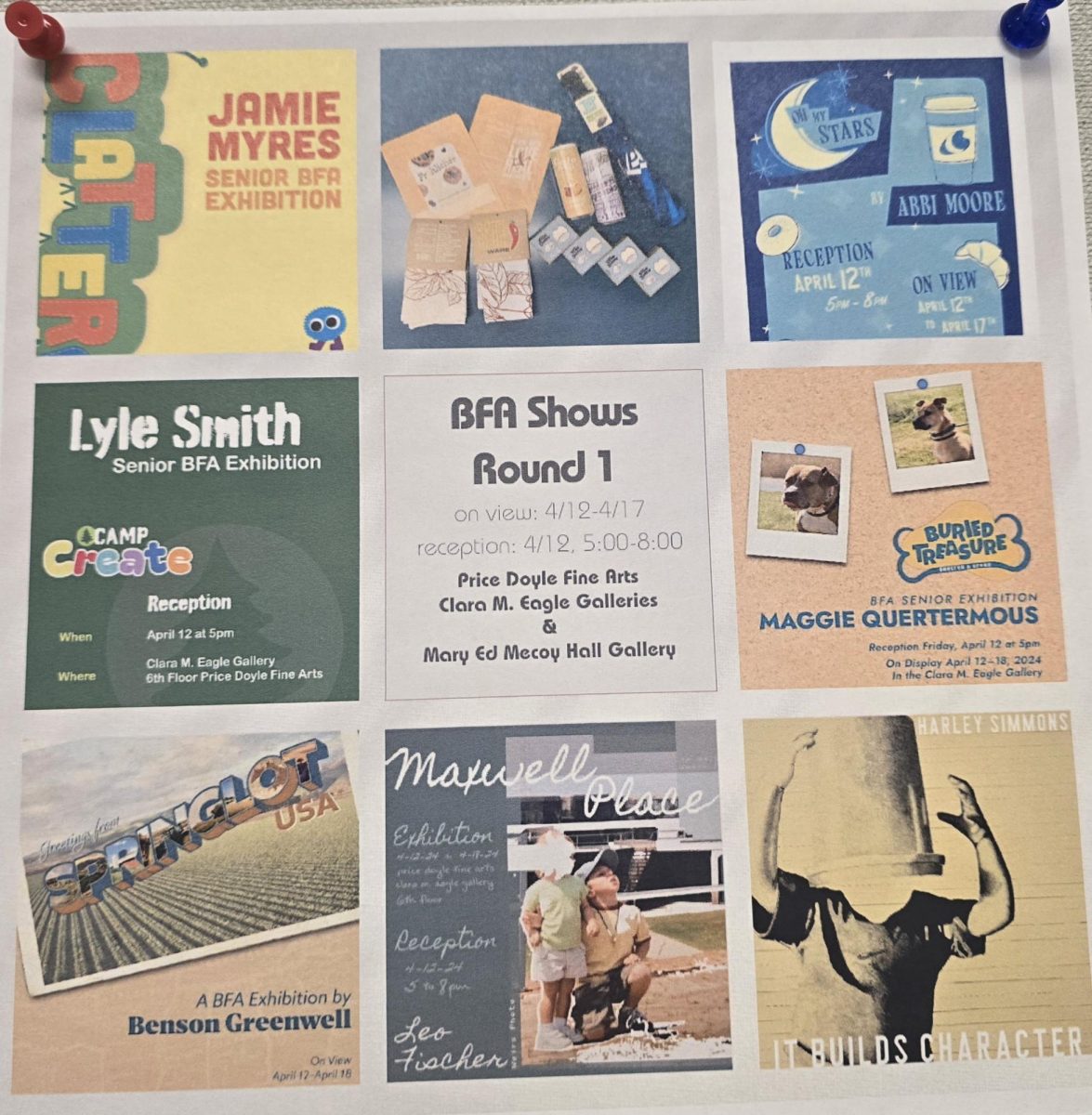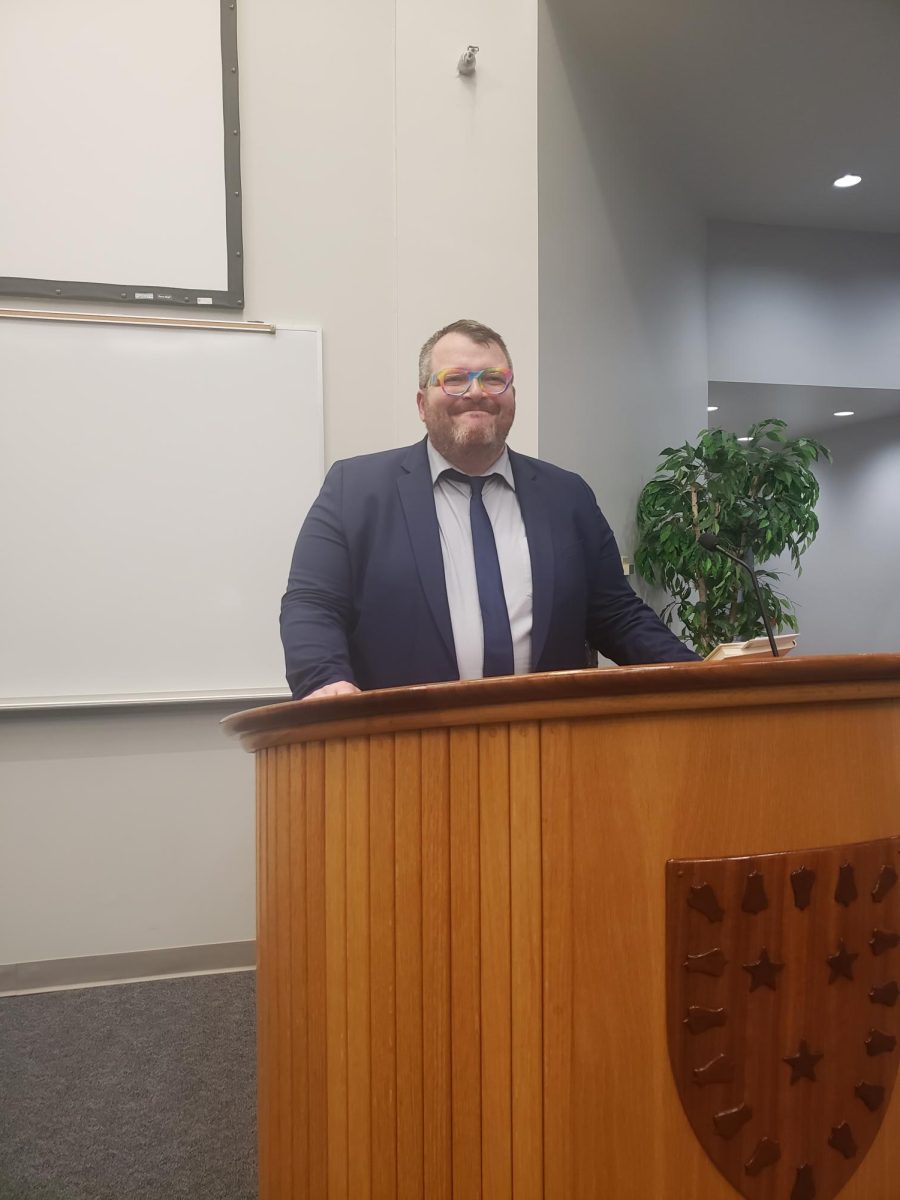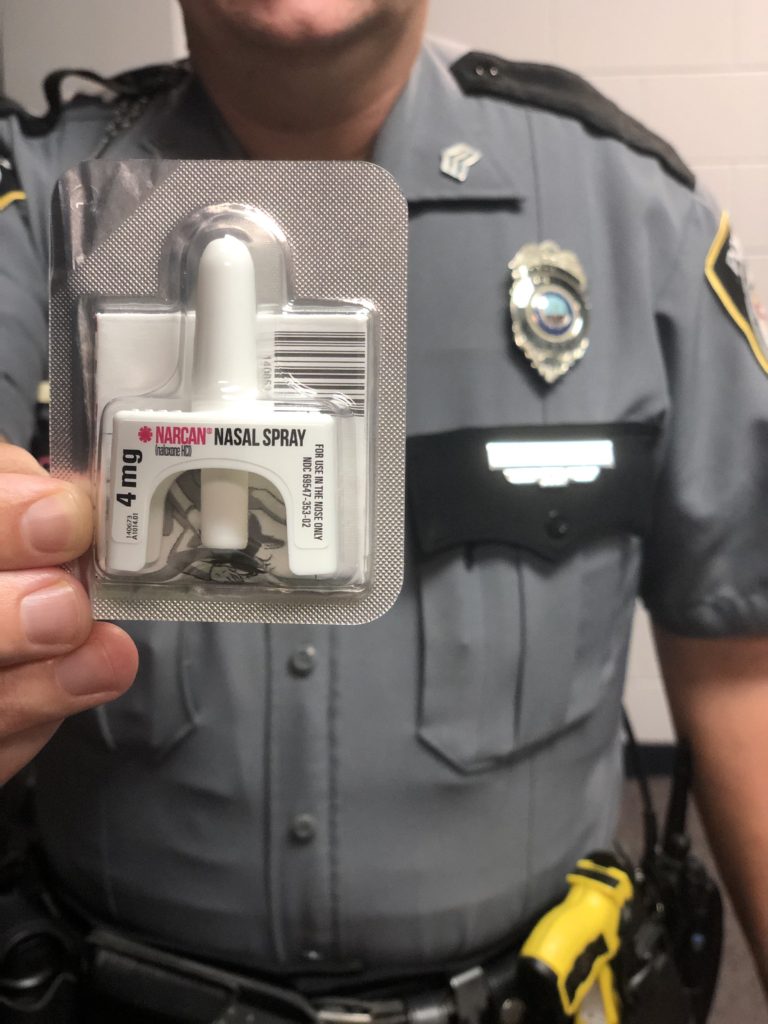Addison Watson
Contributing Writer
The third night of the Murray Police Department’s Citizens Police Academy on Oct. 21 centered around the drug problems in the Murray area, including on Murray State’s campus.
Narcotics Detective Michael Weatherford, who is also a military police officer in the Kentucky Army National Guard, taught this week’s class.
Marijuana, methamphetamine, cocaine, heroin and prescription drugs are some of the narcotics Weatherford touched on in the class. He focused on the effects the drugs have on the community and how he tries to combat them.
“I can arrest minor users all day long,” Weatherford said. “Probably 15 to 20 people a day, but you have to stop the source to make a difference.”
Marijuana consumes the majority of the cases Weatherford works on, but he said methamphetamine and prescription drugs are found in large quantities in the community.
According to the 2018 Kentucky Overdose Fatality Report, 1,247 people died from a drug overdose in the commonwealth last year, down from 1,477 the year before. The majority, 786, of those were a result of fentanyl. The synthetic, or man-made, opioid is 50 times more potent than heroin and 100 times more potent than morphine.
Weatherford said while fentanyl is present in Murray, it’s not typically the opioid of choice. He said the most-abused opioids are commonly prescribed pain relievers, Lortab and Oxycodone.
Weatherford showed attendees Narcan, a nasal spray that counteracts the life-threatening effects of opioid overdoses. He said Narcan was only previously offered to police departments through a grant but due to the opioid epidemic, state officials now provide every officer with the life-saving spray.
While Weatherford does not deal directly with Murray State, he said marijuana and Xanax are the top drugs used by college students.
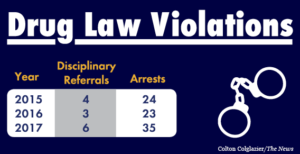
According to the 2018 Murray State Annual Campus Security Report, 35 arrests and six disciplinary referrals were made in 2017 for violations of drug laws. This data shows an increase from 2016 when 23 arrests and three disciplinary referrals were made.
The latest outbreak to sweep the nation is the use of liquid-based Tetrahydrocannabinol, a chemical compound found in marijuana that delivers a high to its users. Younger adults and college students vape the liquid to get high. It’s also easy to obtain a device to vape the liquid through.
Thirty-three people in 24 states, including at least one in Kentucky, have died due to vaping-related illnesses and another 1,479 have been sickened, according to the Centers for Disease Control and Prevention.
“We do know that THC is present in most of the samples tested by FDA to date, and most patients report a history of using THC-containing products,” according to the CDC website.
Weatherford said he is seeing THC-laced vapes in Murray, although no deaths have been reported thus far.
He uses a number of methods to investigate drug cases including confidential informants, audio and video recording equipment, tips, surveillance and knocking on doors.
Not all the instances he observes will result in an arrest, although he said he could do so.
“Sometimes you have to let the smaller things slide to build a bigger case,” Weatherford said. “That way the collective evidence stacks and the charge will stick with the person when it goes to court.”
Sgt. Brant Shutt said the community frequently asks why Murray has such an increased drug problem, but he wants the community to know the department is doing everything it can to combat it.
“We send our guys to training every year, and still can’t keep up with the drug abuse,” Shutt said.
He mentioned the great job Weatherford does when taking a case from a road officer.
“Anytime an officer has a substance he is not sure about, he will contact the narcotics officer,” Shutt said. “Also, if it appears to be a large amount and [there’s] the possibility of a search warrant, he will be contacted. This doesn’t mean he has to come out, but can at least advise what to do if necessary and decide to come out if needed.”
In most cases when an officer crosses paths with a small quantity of narcotics, the officer will handle the case themselves.
Weatherford said nearly $60,000 in cash was confiscated in the last two years during drug busts. Some of the money confiscated goes back into the department for law enforcement purchases.
One of those purchases was a 55 gallon drum, called a drug terminator, that is used to incinerate and sterilize confiscated narcotics. This allows officers to dispose of the drugs and make the waste safe for the landfill.
Crime scene investigation will be the topic of the next Citizens Police Academy on Oct. 28.
Addison Watson is a contributing writer for The Murray State News. As part of his assignment, he is attending the Citizens Police Academy at the Murray Police Department to write this series of stories. You can find all the articles in the series at TheNews.org.



